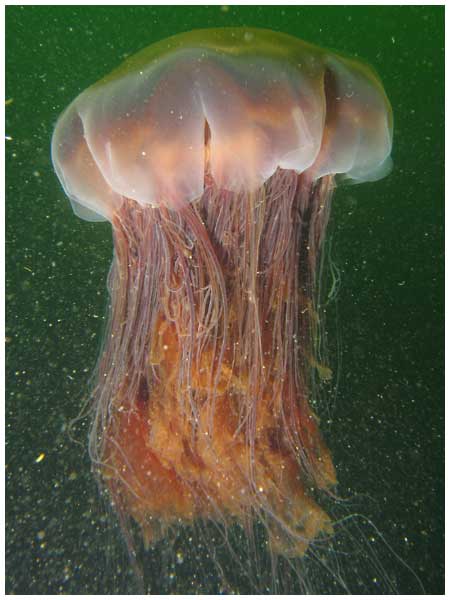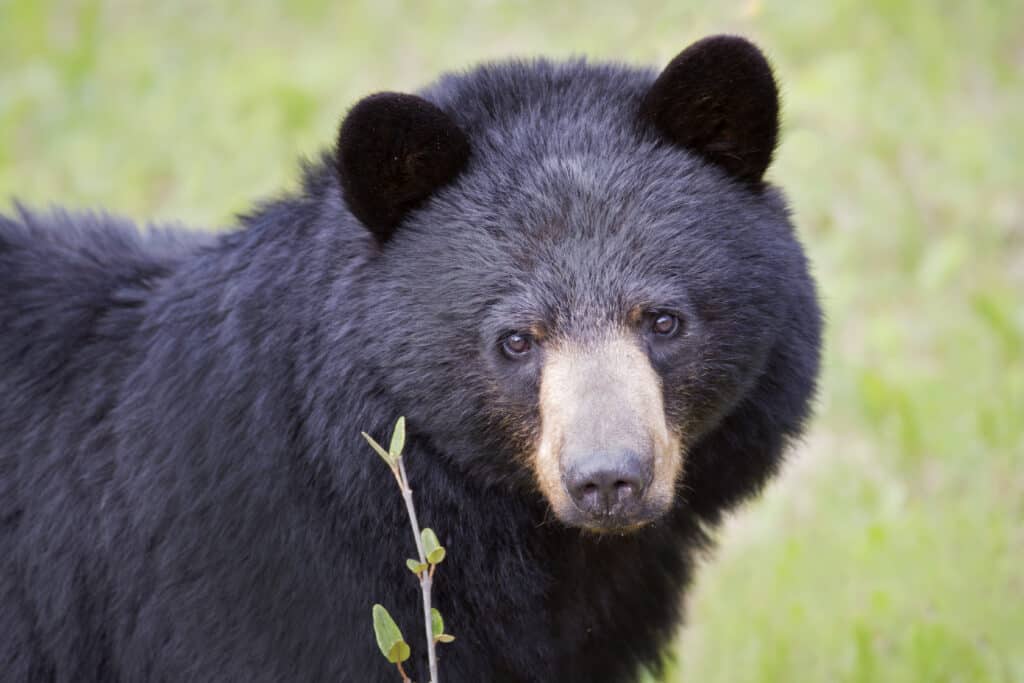Massachusetts is known as the landing place of the Mayflower, Harvard University and Boston Cream Pie (and the very distinctive “Boston” accent). The state has 16 National Parks and a number of state parks with beautiful hiking trails as well as many beaches along the Atlantic coast. While Massachusetts is not considered a dangerous place, there are a few animals you should be aware of to ensure your time in the woods or at the beach are as safe as possible. The state marine animal of Massachusetts is the right whale, but are whales dangerous? Any other dangerous animals along the coast that are dangerous? Are there any poisonous or venomous animals in Massachusetts? What about squirrels? You see them everywhere, but are they dangerous? Let’s find out about some of the dangerous animals in the state.
What Dangerous Animals Are off the Coast of Massachusetts?
With 1,500 miles of coastline there are many opportunities for enjoying the beaches and oceans just off the coast. What animals should you be aware of before venturing out to the beach?
- Sharks: The first dangerous animal you may consider is the shark. They definitely have a reputation for being deadly, but are there sharks off the coast of Massachusetts? The movie Jaws was actually filmed on Martha’s Vineyard, a popular vacation island in Massachusetts. In the movie the town was the fictional island called Amity Island. So, the true part of Jaws is that there are sharks along the coast (everything else is a bit of a stretch!). A few of the common sharks that can be found are the blue sharks, white sharks and basking sharks. Great whites are the most dangerous sharks and can be found off the coast but even with the high number of beach goers and the number of sharks the incidents of attacks are extremely rare. Although the number of shark incidents has risen in the past few years, one reason being the large increase in the number of seals along the coast, there have only been eight reported shark attacks since 2000 with only one fatality in the last 80 years. Sharks are dangerous, but it is also rare that you will encounter one.
- Jellyfish: It is more common that you may encounter a jellyfish but it is also easier to stay clear of them. Most beaches will post jellyfish warnings at the beach during the times that large populations of jelly fish are present. At Nantasket beach in Hull, MA, there were multiple giant lion’s mane jellyfish sighted in June of 2021. These jellyfish have an orangish jelly-body that can grow to be six feet wide! Their tentacles can reach 100 feet long, so you could easily end up at the wrong end of a jelly. The sting of a jellyfish is very painful and you should seek medical attention, especially if you have an allergic reaction. Lifeguards are trained in first aid for jellyfish stings, which is often all that is needed. Lifeguards also remind people to not touch a jellyfish that has washed up on shore because their stingers can be venomous even when they are dead.
- Right whales: The right whale is the state marine animal of Massachusetts due to the rich whaling history of the state. In the 1840’s and 1850’s this was one of the state’s primary industries. Now whales are protected under the federal Endangered Species Act, one of the reasons the right whale was chosen was to educate people about their status as the North American right whale is one of the world’s most endangered large whale species. The National Oceanic and Atmospheric Administration (NOAA) states that there are fewer than 350 of these whales left. Stellwagen Bank National Marine Sanctuary is known as one of the best whale-watching sites. Can you imagine pulling up next to a 50-foot, 70 ton whale! That would be impressive! Due to their endangered status, it would seem that humans are far more dangerous to whales than whales are to humans.

The body of the
lion
‘s mane jellyfish can grow to six feet across and their tentacles can reach 100 feet long.
©Dan Hershman / CC BY 2.0 – License
What Land Animals Are Dangerous in Massachusetts?
- Black bears: Bears seem to be an obvious animal to make this list, and you do need to follow some rules in bear country. There are times that bears venture into towns and populated areas, so knowing what to do during a bear encounter is helpful. There are no grizzly bears (the larger bear species) in Massachusetts, but there are black bears and they can get plenty big at 400 pounds. The population of black bears in the northeast is growing and this is forcing authorities to examine educational programs to keep people safe as the number of bear encounters increase. A few things people can do is to make sure there is no food left out, that garbage cans and dumpsters have secure closures and to remove or secure bird feeders. If you do encounter a bear, stay at least 100 yards from it and report it to local authorities.
- Venomous snakes: Another animal to be aware of when enjoying the national and state parks are the snakes. There are only two venomous snakes in MA, but one of them is the timber rattlesnake, which has a high concentration of venom. These are also large snakes growing to be four to five feet long or even longer and they are not rope-skinny snakes, they are thick all around. The other venomous snake is the copperhead, which is a bit smaller at two to three feet long and not quite as stocky as a rattlesnake, but they are still pit vipers with a venomous bite. Both of these snakes prefer to be left alone and will give a warning by rattling (timber rattlesnake) and/or by rising up as a warning (timber rattler and copperhead). Many of the recorded instances of bites occur when people try to handle or move a snake so if you see one, back away and leave the snake alone. Although there are plenty of rivers, lakes and ponds in MA, there are no venomous water moccasins.

Black bear attacks are rare, but they have long teeth and claws. So it’s best to maintain a safe distance if you spot one.
©Wild Art/Shutterstock.com
Is the Gray Squirrel the Most Dangerous Animal in Massachusetts?
Squirrels are cute, fuzzy and fun to watch at the park as they scurry around searching for nuts, but they can be dangerous. This is a story from the archives of Harvard University, back in 1962 there was a squirrel on campus that wreaking havoc! As the report goes a student, James H. Frantz, was attacked by a squirrel that jumped on him as he was walking in front of Sever Hall. A few hours later, Mrs. William D. Sciurus was startled by a squirrel that came at her from a tree, but she was able to fight it off with her umbrella. Mr. Frantz was not as lucky and was bitten by the squirrel. The biggest concern with an animal behaving in such an unusually aggressive way is that it is suffering from rabies and this disease can be passed on through bites and scratches. The treatment, even back in 1962, was a series of shots to help combat the disease. In the US there were five cases of fatal rabies in 2021, with bats being the most common carrier of the disease. If you have been bitten, receiving the treatment is the best course of action. According to the Centers for Disease Control and Prevention (CDC), “The treatment is nearly always effective at preventing rabies if received before symptoms start.”

Eastern grey squirrels are rarely aggressive towards people. If one attacks, it likely that it has rabies.
©iStock.com/Nigel Harris
Discover the 3 Most Dangerous Animals Swimming in Massachusetts’s Lakes and Rivers
If you’re visiting Massachusetts to see the amazing lakes and rivers, then be cautious of the animals on this list that can cause you harm if you’re not careful.
Up Next
- 5 of the Biggest Spiders in Massachusetts
- Discover Massachusetts’s Only Rattlesnake Species
- 3 Massachusetts Beaches with the Most Shark Attacks
The photo featured at the top of this post is © Alessandro De Maddalena/Shutterstock.com
Thank you for reading! Have some feedback for us? Contact the AZ Animals editorial team.






